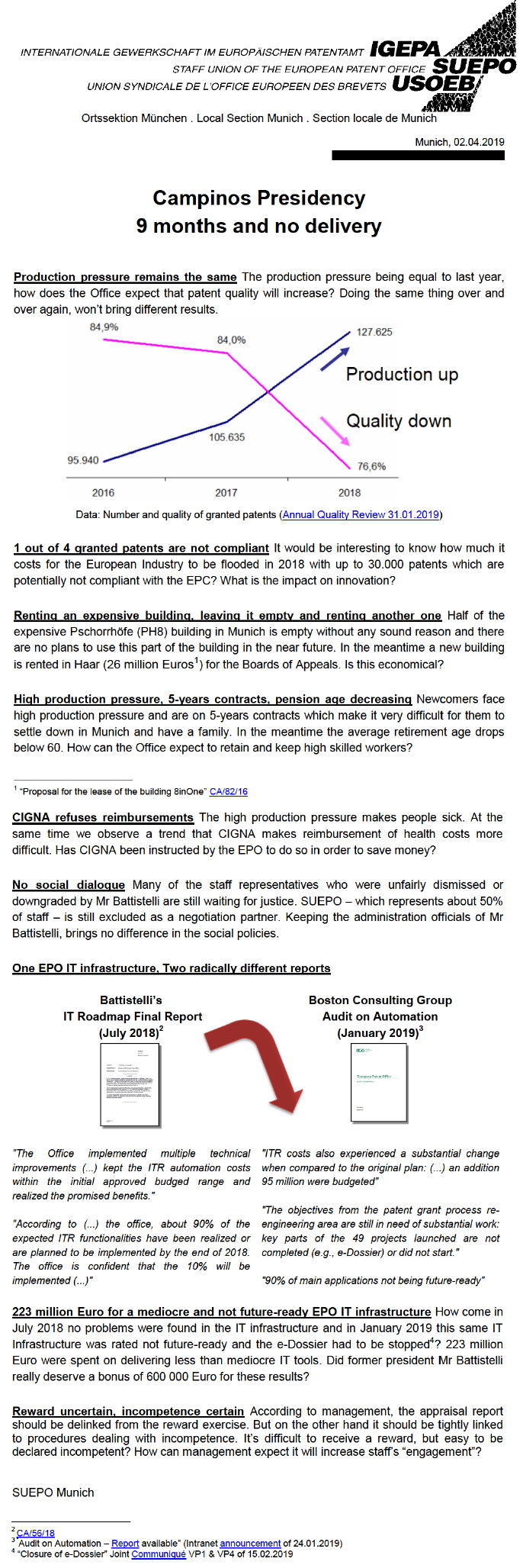

"No doubt lawyers are loving it (this is enriching them), but what about the rest of us (who aren't working in law firms)?"Followed by: "Also the Constitutional Complaint against the UPC takes ages…"
And then also: "In his list of things that take too long in Germany, the author forgot to mention rulings by the Bundesverfassungsgericht…"
Here's another:
The Federal Constitutional Court’s list of “decisions envisaged for this year” is not without a reason nicked “Lügenliste” by the members of the German Rechtsanwaltskammern (German Regional Attorney’s Bar Association).
And that goes without saying, but the UPC/UPA-complaint before the BVerfG has no impact on legal certainty for cases under dispute, and a reference to that would just divert attention away from the main issue, being that most European states have neglected investments into their legal systems.
On a more controversial note, how about abandoning bifurcation in favour of a more UK-style system: where infringement and validity are considered together but there is a possibility of obtaining a preliminary injunction ahead of a full trial?
As I read the statistics presented above, bifurcation is systematically denying timely access to justice for those parties who merely wish to “clear the way”. So why not ditch it completely?
And why on earth set up the UPC so that it can also develop a fast track for infringement and a slow lane for validity proceedings? (Though it has to be said that, in my view, that is probably the least of the myriad of problems with the UPC … and so perhaps it is no bad thing if the BVerfG waits until the dust settles on Brexit, so that the facts surrounding the legality of the UPC system are known.)
“And given that it is easier to comply with applicant’s wishes than to write a decision of refusal, you can guess what this trend means for the average quality of the search and examination process.”
We should also not forget that since April 2018 (and with retroactive (!) effect as from 01 January 2018), the production points awarded to EPO examiners for refusal decisions has been reduced from previously 2 points to now only 1 point.
The previous counting of 2 points per refusal decision was done in recognition of the fact that a refusal decision requires significantly more work (typically a number of Art. 94(3) EPC communications, then summons, holding of oral proceedings, a lengthy decision on possibly multiple auxiliary requests to be written) than an intention to grant.
Hence, since this difference in workload between a proposal to grant and a refusal decision is no longer recognised, there is now absolutely no reason for a sane EPO examiner to burden herself or himself with the hassle of a refusal.
The reason given by senior EPO management (COO HBC) as to why refusals were now recognised identically to intentions to grant, she said that this was to harmonise award point counting with production counting.
When asked whether harmonisation was the relevant factor to consider, when what was at stake was a difference in workload, a silent smile but no answer was given.
When then asked whether the reduced recognition of refusal decisions meant that less effort was now expected to be put into these decisions (such as by providing less reasoning, or no reasoning at all), she refused to answer the question.
Now there is some surprise at management level that a recent staff survey at the EPO has revealed sub-zero confidence levels of the examiners in their senior management…
Wielsbeke, Belgium, May 8, 2019-On May 6, the European Patent Office (EPO) confirmed the validity of European patent No. 2 588 311 (EP 311) owned by Unilin BVBA in opposition proceedings filed by Windmöller GmbH; Windmöller will appeal the EPO decision, believing it has strong non-infringement arguments against this patent.